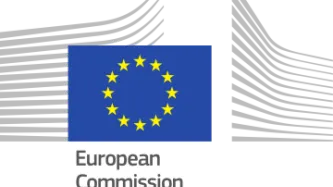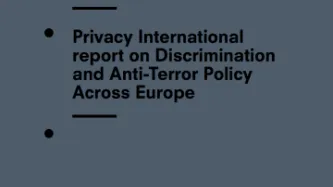Search
Content type: Report
Privacy International’s submissions for the Independent Chief Inspector of Borders and Immigration inspection of the Home Office Satellite Tracking Service Programme
The Home Office have introduced 24/7 electronic monitoring and collection of the location data of migrants via GPS ankle tags. This seismic change cannot be overstated. The use of GPS tags and intention to use location data, kept for six years after the tag is removed, in immigration decision-making goes far beyond the mere…
Content type: Press release
Today, the High Court ruled that the Home Secretary acted unlawfully and breached human rights and data protection laws by operating a secret, blanket policy of seizing, retaining and extracting data from the mobile phones of asylum seekers arriving by small boat.
This claim for judicial review was brought by three asylum seeking claimants: HM represented by Gold Jennings, and KA and MH represented by Deighton Pierce Glynn. The Claimants, like thousands of others arriving by small boat, all…
Content type: News & Analysis
The Aspen Card - the debit payment card given to asylum seekers that PI has previously exposed as a de facto surveillance tool - will be outsourced to a new company. The contract with Sodexo has come to an end and the company Prepaid Financial Services will be taking over.
Our campaign for transparency in relation to the Aspen Card and how it monitors asylum seekers continues. Not only do we demand clarity from the Home Office [read more here], we believe the new provider, Prepaid Financial…
Content type: News & Analysis
In the last few weeks, the UK government has announced various new measures to ensure that crossings across the Channel were “inviable” including by appointing a new role of “clandestine Channel threat commander" and further plans to deploy the navy to stop migrants from crossing to the UK from France across the Channel. Premature plans it seems, as not only would such measures be contrary to the UK’s international obligations to allow individuals to seek asylum in the UK, but also since such…
Content type: Examples
Up to 30 charities and organisations have written to home secretary Priti Patel calling for a number of amendments on Tuesday - a year exactly until the scheme ends.
Under current arrangements, EU citizens have been told to apply by June if they wish to continue living and working in Britain.The letter said: “We are concerned that the government has not taken appropriate steps or made the adequate adjustments to the EUSS necessary to protect EU citizens and family members from Covid-19. We…
Content type: Examples
On March 14 a group of immigrant advocacy groups wrote to the government asking for the Home Office to release all 1,500 to 2,000 detainees in order to protect them from a coronavirus outbreak in the UK's seven removal centres and two short-term holding centres.. On March 21, the Home Office said it had released 300 of the detainees. The charity Detention Action launched a legal action to compel the Home Office to release the most vulnerable detainees and test all detainees. The Home Office…
Content type: Examples
In a report released in December 2018, the UK's National Audit Office examined the management of information and immigrant casework at the Home Office that led to the refusal of services, detention, and removal of Commonwealth citizens who came to the UK and were granted indefinite leave to remain between 1948 and 1973, the so-called "Windrush generation" but never given documentation to prove their status. The NAO concludes that the Home Office failed to adequately consider its duty of care in…
Content type: News & Analysis
Privacy International has joined over 30 organisations working with migrants and refugees to write to the newly appointed British Home Secretary to raise a number of pressing issues, which require action if the immigration and asylum system is to regain the trust of the public.
The letter below was sent to the Home Secretary on Wednesday, 30 July 2019.
Find out more about PI’s work to demand a more humane approach to immigration based on the principles of fairness, accessibility, and respect…
Content type: News & Analysis
According to the International Organization for Migration, an estimated 258 million people are international migrants – that is, someone who changes their country of usual residence, That’s one in every 30 people on earth.
These unprecedented movements levels show no sign of slowing down. It is predicted that by 2050, there will be 450 million migrants across the world.
Nowadays, it is politically acceptable to demonise migrants, and countless leaders have spewed divisive and xenophobic…
Content type: Long Read
Cellebrite, a surveillance firm marketing itself as the “global leader in digital intelligence”, is marketing its digital extraction devices at a new target: authorities interrogating people seeking asylum.
Israel-based Cellebrite, a subsidiary of Japan’s Sun Corporation, markets forensic tools which empower authorities to bypass passwords on digital devices, allowing them to download, analyse, and visualise data.
Its products are in wide use across the world: a 2019 marketing…
Content type: Long Read
Image: Eric Jones
The UK government last week hosted hundreds of surveillance companies as it continues to try and identify “technology-based solutions” able to reconcile the need for controls at the Irish border with the need to avoid them.
The annual showcase conference of 'Security and Policing' brings together some of the most advanced security equipment with government agencies from around the world. It is off limits to the public and media.
This year’s event came as EU and UK…
Content type: Advocacy
Privacy International has responded to the European Commission’s consultation on the interoperability of EU information systems for borders and security.
The Commission is currently looking at ways in which various border control and policing EU databases and IT systems can be connected to share and exchange more data.
The plans raise a number of concerns as highlighted by Privacy International in our response. These relate to significant potential harms associated with…
Content type: News & Analysis
At the moment there is much anger about a UK Border Official who, according to the BBC, relaxed "identity checks on non-EU nationals" over the summer. This 'relaxation' then was claimed to have placed the UK at risk because names of visitors were not checked against 'watchlists'. This news is unsurprising in some respects, and quite shocking in others.
The controversy centres on the call to temporarily suspend checking the e-passports of individuals from outside of the EU…
Content type: News & Analysis
Privacy International's recent complaint to the UK Information Commissioner has threatened to bring to a halt an imminent plan to fingerprint all domestic and international passengers departing from Heathrow's Terminal 1 and Terminal 5, due to begin on March 27th. The British media is reporting that in response to PI's complaint, the Information Commissioner has advised that passengers should only accept fingerprinting "under protest" until our complaint is resolved.
The prospect of…
Content type: News & Analysis
Privacy International and the American Civil Liberties Union have appealed to the Council of the European Union, the European Commission, the European Parliament, and privacy commissioners in 31 countries across Europe to repeal the agreement between the EU and the US on passenger data transfers. We argue that, with the recent disclosure of the 'Automated Targeting System' being used by the US Department of Homeland Security, the US has violated both American law and the agreement with the EU…
Content type: Report
Race relations across European states are usually far from ideal. However in law, European countries appear to grant Europeans ideal protections against discrimination. There are mounting tensions with ethnic and minority communities in countless European countries, with particular suspicion and aggression pointed towards the Roma people, Travellers, Northern Africans, Turks, Jehovah’s Witnesses, and people of Islamic and other faiths. Increasingly these groups are finding safe havens behind…
Content type: News & Analysis
In a tipping of the hat to the Americans, the UK is set to establish the largest border surveillance programme to date. The new programme will involve the collection of biometrics on visitors to the UK, the generation of vast information stores on all Britons and visitors, and a profiling system to identify those worthy of further scrutiny.
This programme does not merely apply to combatting terrorism however; it is for use for general policing matters.
We have archived the 'partial'…













